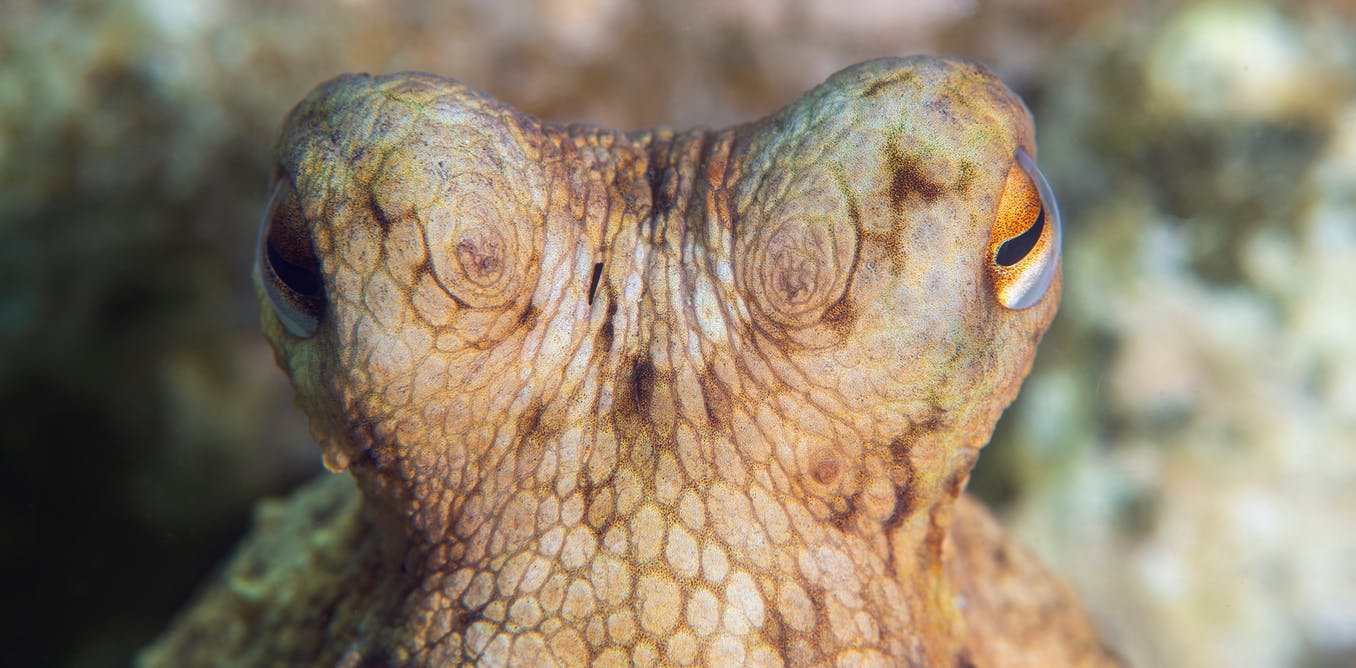Couple excerpts:
My research examines animal minds and ethics, and to me, the phrase “octopus culture” brings to mind Octopolis and Octlantis, two communities of wild octopuses in Jarvis Bay, Australia."
In Octopolis, numerous octopuses share — and fight over — a few square metres of seabed. In these watery towns, octopuses form dominance hierarchies, and they’ve started developing new behaviours: male octopuses fight over territory and, perhaps, females by throwing debris at one another and boxing.
There are many reasons to worry that an octopus farm will not be easy to manage. Unlike other farmed animals, octopuses need their space. Octopolis is already a battleground of boxing octopuses; one can only wonder what that will look like on a scale of thousands.
Octopuses are sentient — they are emotional animals that feel pain. A recent report commissioned by the department for Environment, Food & Rural Affairs in the United Kingdom reviewed the scientific evidence for pain experience in cephalopod molluscs (octopuses, squid and cuttlefish).
As someone that had to look after crickets on a small scale for other animals like a tarantula to eat, that's definitely a little bit reductive. They're not mammals or birds or anything, but they have survival instinct, interact with each other, can play tricks to try escape predators, amputate their own limbs after injury, groom themselves, etc. While they're not on the same level as mammals as far as sentience and feeling pain goes, they're not complete robots either.
Insects and arachnids are definitely understudied in this regard.
They're animals, they're living and reactive. They avoid death and pain. I see no reason to assume they have no sense of experience.
Unclear. In the absence of confirmation, I opt to leave them be, particularly with other options available.
I would say it depends on the insect species involved. Some don't feel pain in a mammal like way, other species respond very mammal like.
From my experience, I would say that crickets can't comprehend pain in way we and other mammals do, kind of intermediate between complete robot and mammal like sentience, but spiders and moth larvae respond to "pain" in a much more mammal like way.
I'm no scientist or anything though. Just worked at an exotic pets store and looked after a tarantula for a while.
Iä! Iä! Cthulhu fhtagn! Ph'nglui mglw'nfah Cthulhu R'lyeh wgah'nagl fhtagn!
one can only wonder what that will look like on a scale of thousands.
Cthulhu but it's a giant hunter from halo wielding a battleship and an aircraft carrier :sicko-charging:






